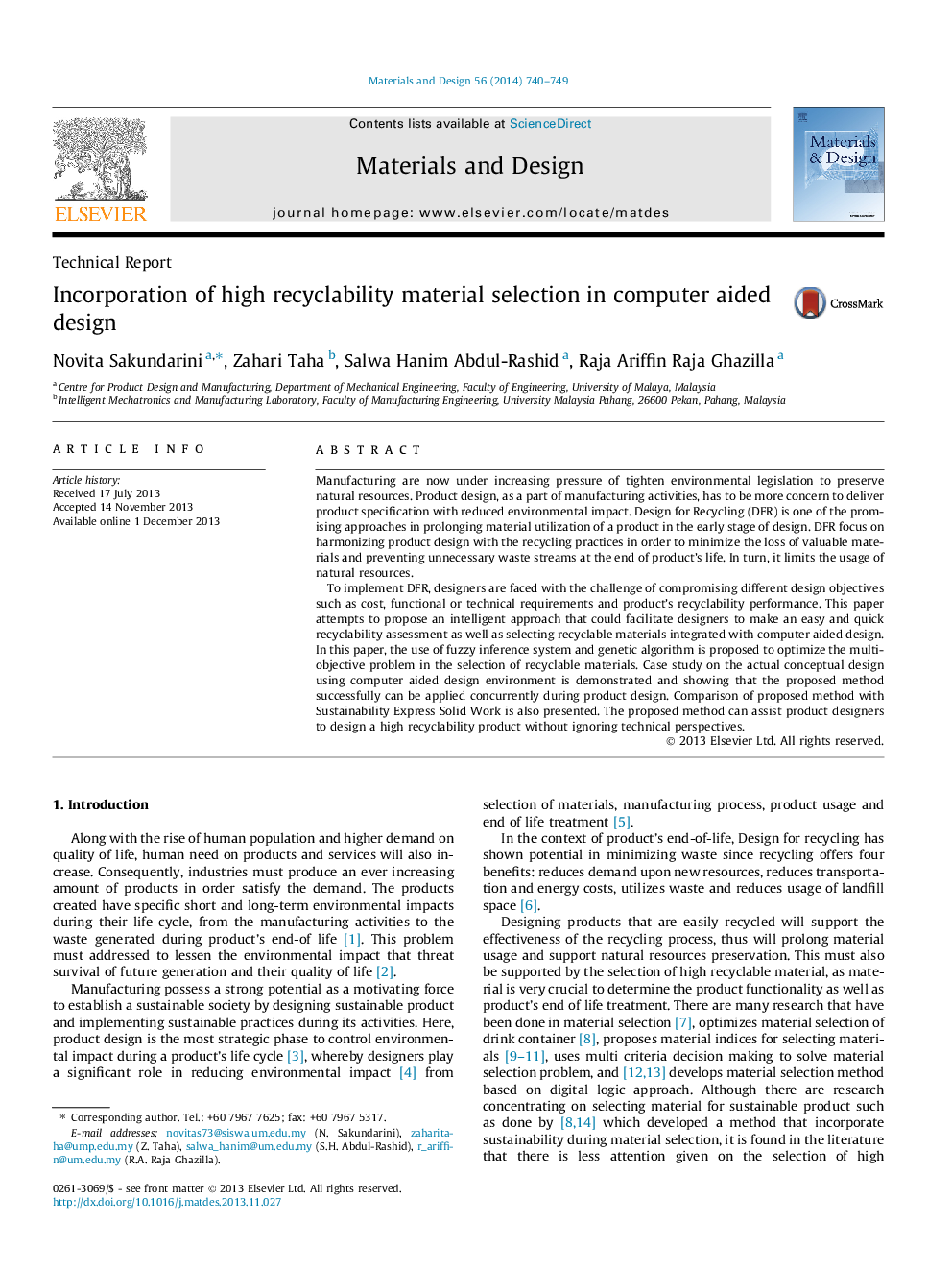| Article ID | Journal | Published Year | Pages | File Type |
|---|---|---|---|---|
| 829497 | Materials & Design (1980-2015) | 2014 | 10 Pages |
•Method for assisting designers in selecting materials in CAD based design.•Developing a recyclability assessment.•The proposed method successfully could generate new design configuration.•The proposed method assist designer to select optimal material with high recyclability during CAD based design.
Manufacturing are now under increasing pressure of tighten environmental legislation to preserve natural resources. Product design, as a part of manufacturing activities, has to be more concern to deliver product specification with reduced environmental impact. Design for Recycling (DFR) is one of the promising approaches in prolonging material utilization of a product in the early stage of design. DFR focus on harmonizing product design with the recycling practices in order to minimize the loss of valuable materials and preventing unnecessary waste streams at the end of product’s life. In turn, it limits the usage of natural resources.To implement DFR, designers are faced with the challenge of compromising different design objectives such as cost, functional or technical requirements and product’s recyclability performance. This paper attempts to propose an intelligent approach that could facilitate designers to make an easy and quick recyclability assessment as well as selecting recyclable materials integrated with computer aided design. In this paper, the use of fuzzy inference system and genetic algorithm is proposed to optimize the multi-objective problem in the selection of recyclable materials. Case study on the actual conceptual design using computer aided design environment is demonstrated and showing that the proposed method successfully can be applied concurrently during product design. Comparison of proposed method with Sustainability Express Solid Work is also presented. The proposed method can assist product designers to design a high recyclability product without ignoring technical perspectives.
